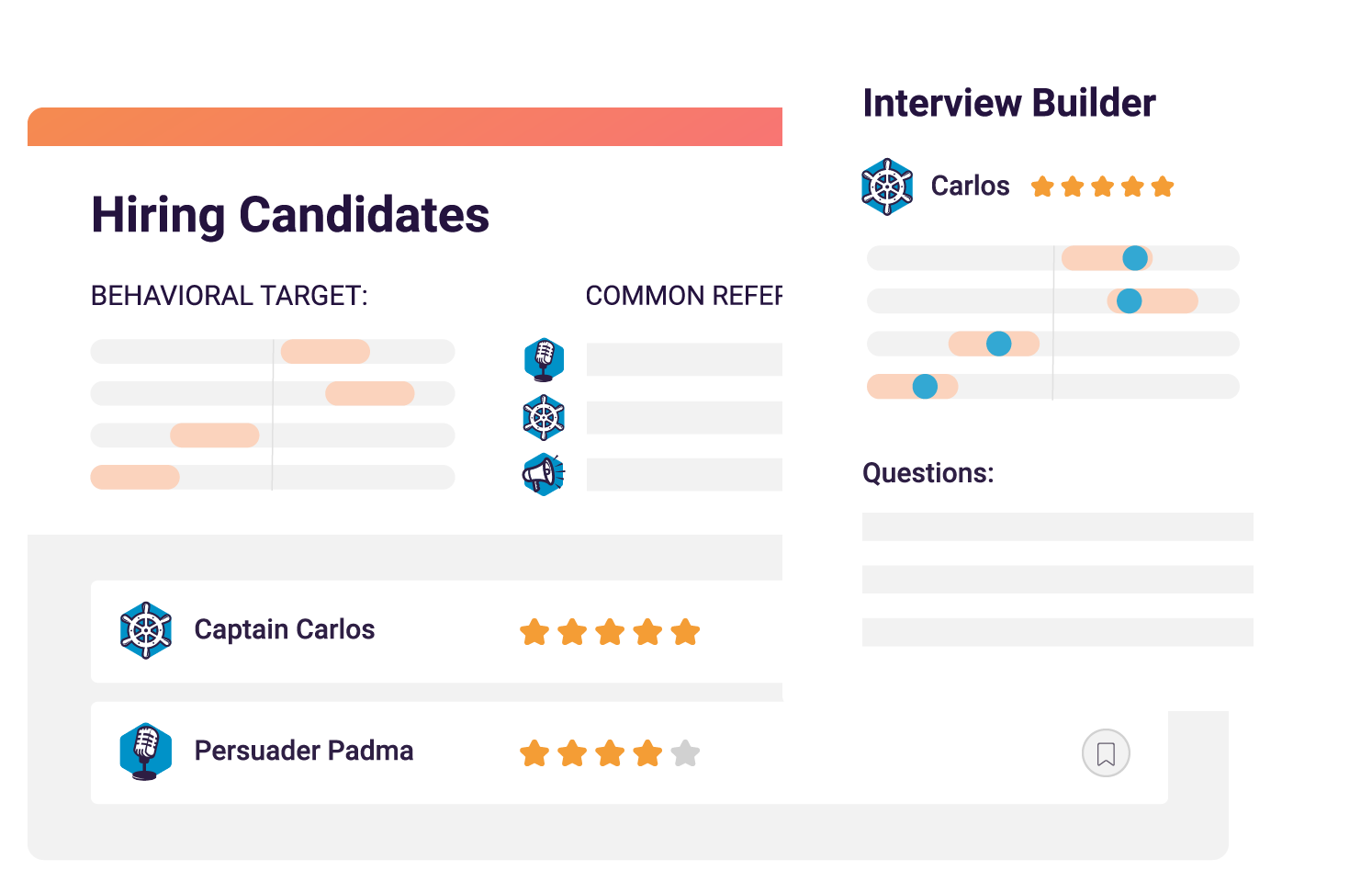Key HR skills refer to the kinds of knowledge, abilities, and competencies necessary for effective human resources management. They include a blend of hard and soft skills that allow HR professionals to manage people, processes, and strategic initiatives with a keen eye for organizational efficiency.
In today’s competitive business environment, developing these skills is crucial for HR managers who want to drive organizational success, improve employee satisfaction, and stay ahead of industry trends. Let’s take a closer look at the traits that make an effective HR leader.
What are HR skills?
Human resource skills comprise many abilities that empower human resources professionals to manage employee relations, recruitment, development, and organizational strategy. For HR leaders, this skill set is crucial, as they ensure the effective alignment of the workforce with the company’s goals.
These competencies allow leaders to navigate complex employee dynamics and make data-driven decisions that foster a productive workplace.
Why do HR skills matter?
HR skills are essential for effective leadership because they allow HR professionals to navigate employee dynamics, drive change, and maintain a productive workplace.
These skills can also boost confidence, improve employee satisfaction, and enhance decision-making, enabling leaders to address challenges efficiently while contributing to organizational success.
Empower the Managers at your Organization
Explore how PI Perform uncovers behavioral insights to help managers prep, communicate, coordinate, and lead their teams.
Tops skills for HR leaders
Let’s dive into the key areas that every HR leader should master.
Admin
While HR leaders may not always directly manage day-to-day HR roles like employee leave, payroll, or new employee onboarding, they must understand these functions in order to ensure smooth operations.
Delegating administrative responsibilities while keeping a pulse on these processes can help HR leaders maintain operational efficiency.
Communication skills
Effective communication is a cornerstone of HR leadership. HR teams must clearly articulate policies, provide guidance, and handle sensitive employee issues with the necessary tact that they demand.
Strong verbal and written communication skills can also ensure that everyone in the organization is aligned, minimizing misunderstandings and fostering a collaborative work environment. Whether presenting to executives or addressing employee concerns, clear communication never hurts.
Conflict resolution
Often tasked with mediating disputes between employees (or between employees and management), navigating disagreements with fairness and diplomacy is a crucial skill for HR leaders.
Effective conflict management prevents issues from escalating and when done correctly—can also strengthen team dynamics and improve overall employee satisfaction.
Active listening
HR leaders need to fully understand employee concerns in order to provide appropriate support. That’s why active listening is such an essential skill for HR leaders—by giving full attention to the speaker and demonstrating empathy, HR professionals can build trust and rapport with their team.
Adaptability
Adaptability is a must-have for HR leaders in a rapidly changing business landscape.
Effective change management allows HR professionals to respond effectively to new challenges, whether it’s adjusting to new technologies, shifts in company culture, or changes in labor laws. Adaptable leaders can smoothly guide their organizations through transitions, ensuring that teams remain productive without sacrificing morale.
Employee recruitment and onboarding
Mastering recruitment and onboarding requires strong talent identification, interviewing, and ensuring alignment between your candidate’s career path and your organization’s goals.
HR leaders with these skills can design hiring processes that attract high-quality candidates and align them with the company’s culture. Additionally, effective onboarding skills ensure new hires are welcomed, trained, and integrated smoothly, fostering long-term engagement and retention.
Employee retention
Employee retention relies heavily on HR leaders’ ability to create a supportive and growth-oriented work environment. Proficiency in performance management, career development, and feedback are vital in keeping employees engaged and motivated. HR leaders who excel in these areas can implement strategies that reduce turnover, enhance job satisfaction, and foster long-term employee loyalty.
Employee engagement
Driving employee engagement requires a unique blend of interpersonal and leadership skills. HR leaders who excel in communication, relationship management, and employee experience can cultivate a highly motivated and committed workforce—driving strong teamwork along the way.

Decision-making
Strong decision-making skills are crucial for HR leaders to navigate complex organizational challenges.
The ability to analyze data, assess risks, and make informed choices ensures that HR strategies align with business goals. Leaders who are skilled in this area can implement solutions that are efficient and support long-term organizational growth and employee well-being.
Emotional intelligence
Emotional intelligence is a vital skill for HR leaders, enabling them to navigate interpersonal relationships with empathy, self-awareness, and effective communication. Leaders who excel in emotional intelligence can better understand employee emotions, manage conflicts, and promote a positive work environment.
Interpersonal skills
Interpersonal skills are crucial to building meaningful relationships within the workplace.
HR leaders with strong interpersonal skills excel in communication, conflict resolution, and fostering collaboration. By developing these skills, leaders can create a more cohesive, supportive work environment where employees feel heard, valued, and motivated to contribute to the organization’s success.
Management skills
Practical management skills enable HR leaders to oversee teams, allocate resources, and meet organizational goals. These skills are essential for balancing the organization’s and its employees’ needs, ensuring smooth operations and long-term success.
Project management
The ability to plan, organize, and execute initiatives ensures that HR projects—such as new policy implementations or training programs—are completed on time and within budget. Leaders who excel in project and time management can keep teams focused, manage resources effectively, and deliver results that align with broader organizational objectives.
Data analytics and reporting
Data and reporting skills enable your HR department to make informed, strategic decisions based on metrics and analytics.
Strategic planning
Leaders who excel in this area can develop long-term strategies encompassing talent management, organizational development, and workforce planning. By integrating business acumen with their HR expertise, these leaders can ensure that the company’s human capital contributes to overall growth and competitive advantage.
Human resources information software (HRIS)
When it comes to managing HR operations, HR Information Systems are now essential workplace tools.
These systems streamline tasks like payroll, benefits administration, and employee records management, allowing HR leaders to focus on more strategic initiatives. HR professionals skilled in HRIS can ensure data accuracy, improve efficiency, and tap into valuable insights through reporting and analytics, all of which enhance decision-making processes.
Future AI skills to develop
As technology evolves, HR leaders must develop skills related to artificial intelligence (AI) to stay ahead. Familiarity with AI-driven tools for recruitment, performance management, and employee engagement will be essential for future HR success.
Leaders should also focus on understanding ethical considerations around AI, such as data privacy and bias, while keeping an eye on emerging technologies like virtual and augmented reality.
How to develop HR skills
HR leaders must continually improve their skills to stay effective and relevant. Whether through formal education, networking, or hands-on experience, there are many ways to develop these essential skills.
70% of People Say that HR is an Essential Piece of the Leadership Puzzle
Our State of Talent Optimization Report will help you put that puzzle together and become the leader you need to be
Taking an in-person or online course
Courses can cover various topics, from communication to strategic management, and provide HR leaders with up-to-date knowledge that can be immediately applied in the workplace.
Getting a professional certification
Professional certifications—such as SHRM-CP, PHR, or CIPD—are excellent ways for HR leaders to validate their skills and expertise. Certifications increase credibility, demonstrating a commitment to professional development and staying current with industry trends.
Continued learning of best practices
HR leaders must stay updated on best practices, including emerging technologies, policy changes, and labor law updates. Ongoing learning ensures leaders can anticipate industry shifts and implement modern solutions that enhance HR processes.
How The Predictive Index can help
The Predictive Index provides powerful tools and solutions that support HR leaders in developing and enhancing their skills. Whether through talent optimization, performance management, or employee engagement tools, we can help HR professionals maximize their impact and lead more effectively.
Schedule a demo to discover how we can help you maximize your HR leadership impact.








